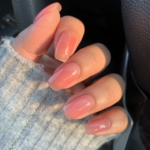Sleep is an important aspect of our daily lives, contributing significantly to our overall health and well-being. However, for some people, the tranquility of a good night’s sleep can be disrupted by an unexpected and puzzling phenomenon: night sweats. The experience of waking up drenched in sweat can be both uncomfortable and bewildering, leading one to ask, “Why do I sweat while I sleep?” This mystery has intrigued many people, and understanding the basic factors behind night sweats is important to ensure a restful and rejuvenating sleep. Join us as we explore the facts you should know about why you may find yourself sweating in your sleep.

CAUSES OF SWEAT WHEN SLEEP
Night sweats, or sweating while sleeping, can be caused by various factors. Understanding these causes is essential to address and manage the issue effectively. Here are some common reasons why you might experience night sweats
ROOM TEMPERATURE AND BEDDING
TOO WARM ENVIRONMENT
An overheated bedroom or excessive bedding can lead to increased body temperature, causing you to sweat during the night. This excess sweating can disrupt your sleep, as the body’s natural cooling process is hindered, leading to discomfort and potential sleep disturbances. Maintaining a comfortable sleep environment with appropriate bedding and room temperature can contribute to a more restful night’s sleep.
INAPPROPRIATE BEDDING MATERIALS
Certain materials like flannel or heavy blankets may trap heat, contributing to excessive sweating. Using materials like flannel or heavy blankets can make you feel too hot, causing you to sweat a lot while you sleep. It’s better to choose lighter bedding options to stay comfortable and avoid waking up all sweaty.
HORMONAL CHANGES
MENOPAUSE
Hormonal fluctuations during menopause can lead to night sweats in women. When women go through menopause, changes in hormones can make them experience night sweats, which means they might get really sweaty during their sleep. These hormonal shifts can affect the body’s temperature regulation, causing discomfort at night.
LOW TESTOSTERONE LEVELS
Men may experience night sweats due to low testosterone levels.
Low levels of testosterone in men can cause night sweats, where they might find themselves sweating a lot during sleep. These things can affect the body’s ability to discomfort and disturbed sleep.
INFECTIONS AND ILLNESSES
When you have a fever because of an infection or illness, your body might try to cool down by sweating during sleep. It’s like your body’s way of managing its temperature when you’re sick, and this can make you feel sweaty at night.
MEDICATIONS
Some medications, such as certain antidepressants or fever-reducing drugs, can lead to increased perspiration as a side effect. It’s just something that can happen when you take these medicines, and it’s good to be aware of possible side effects. Being aware of potential side effects is important when taking medications like certain antidepressants or fever-reducing drugs, as they can sometimes cause increased sweating. Understanding these effects can help individuals better manage their health and discuss any concerns with their healthcare provider.
MEDICAL CONDITIONS
SLEEP APNEA
When you have interruptions in your breathing during sleep, like in sleep apnea, it can make you sweat a lot at night. This happens because the body works harder to get enough air, leading to increased perspiration.
HYPERHIDROSIS
Excessive sweating during sleep, known as night sweats, may indicate a medical condition where the body produces an unusually high amount of sweat. If you’re going through this, consulting a doctor is advisable to identify the cause and explore appropriate solutions.
STRESS AND ANXIETY
Stress and anxiety can significantly contribute to sweating during sleep. When the body is under stress, it releases stress hormones like cortisol, which can elevate body temperature and trigger sweating. Additionally, anxiety often leads to heightened physiological arousal, activating the body’s “fight or flight” response and increasing sweat production. The combination of physical and emotional strain can disrupt the body’s natural sleep regulation, causing night sweats.
DIETARY HABITS
Eating spicy foods right before bedtime can make your body get warmer and cause you to sweat while you’re sleeping. Spices can increase your overall body temperature, and this temperature rise may lead to nighttime sweating. Choosing milder foods before bedtime can help keep your body cool and improve your sleep comfort.
ALCOHOL AND SUBSTANCE USE
Drinking too much alcohol can make you sweat more at night as your body processes the alcohol. When your body breaks down alcohol, it can cause changes in your metabolism, leading to increased perspiration during sleep. Limiting alcohol intake, especially close to bedtime, may help reduce the likelihood of experiencing night sweats and contribute to a more comfortable sleep.
HOW TO COPE WITH SWEATING WHILE SLEEPING
If you’re experiencing excessive sweating during sleep, it’s worthwhile to investigate if you can address the issue independently. For example, if your bedroom or bedding feels excessively warm, consider opening a window or opting for lightweight sheets to promote better airflow.
However, if modifying your sleep environment doesn’t yield positive results, it’s advisable to consult with your doctor. Inform them about any additional symptoms you may be experiencing alongside night sweats. They can assess the situation, identify potential causes, and recommend appropriate treatments.
To cope with night sweats and potentially prevent them, consider the following tips:
PREPARE FOR SLEEP
Creating a comfortable sleeping environment can significantly reduce night sweats. Make sure your bedroom stays cool by using a fan, air conditioner, or simply opening a window to regulate the temperature. Furthermore, choosing sleepwear and bedding designed to wick away moisture can enhance overall comfort during the night. Choose lighter pajamas or go without pajamas to help cool your body more effectively. Additionally, keeping a source of cold water nearby, such as a water bottle or glass next to your bed, will be a quick and convenient way to stay hydrated and effectively control night sweats. A good sleep also helps you get rid of unpleasant conditions such as facial puffy or eyes puffy.
KEEP A REASONABLE WEIGHT
Maintaining a healthy weight is crucial in managing night sweats, as excess body weight can exacerbate sweating during sleep. When the body carries extra weight, it tends to generate more heat, leading to an elevated core temperature. This, in turn, can trigger excessive sweating as the body attempts to cool itself down. Achieving and maintaining a healthy weight through a balanced diet and regular exercise not only promotes overall well-being but can also significantly reduce the likelihood of experiencing disruptive night sweats.
STAY AWAY FROM STIMULANTS
To enhance sleep quality and mitigate night sweats, it is advisable to steer clear of certain substances. Alcohol, for instance, should be avoided as it can disrupt the body’s natural temperature regulation, potentially worsening night sweats. Additionally, refraining from alcohol and tobacco can positively impact overall sleep quality. Another essential consideration is avoiding the consumption of caffeine, spicy foods, and hot drinks before bedtime, as these can contribute to an increase in body heat. By adopting these lifestyle adjustments and avoiding such substances, individuals can create an environment conducive to better sleep and reduced occurrences of night sweats.
REGULARLY PRACTICE SPORTS
Regular exercise is beneficial for overall health and can contribute to better sleep patterns. However, it’s advisable to avoid engaging in vigorous physical activity right before bedtime, as it may elevate your body temperature, making it more challenging to unwind and fall asleep. Instead, schedule your exercise routine earlier in the day to allow your body sufficient time to cool down before bedtime, promoting a more restful and undisturbed night’s sleep. Finding a balance in your daily exercise routine can contribute not only to physical well-being but also to improved sleep quality.
WHEN TO SEE A HEALTHCARE PROVIDER
If you are consistently experiencing excessive sweating during sleep, it is advisable to consult with a healthcare provider. Seeking professional advice is particularly important if the night sweats are persistent, severe, or accompanied by other concerning symptoms.
Your healthcare provider can help identify the underlying causes, whether they are related to medical conditions, medications, or lifestyle factors. By discussing your symptoms and medical history with a healthcare professional, you can work together to determine the appropriate course of action, addressing any potential health issues and improving the quality of your sleep.
FAQ
1. Why do I sweat in my sleep in a cold room?
Sweating in a cold room during sleep can occur if your bedding or sleepwear traps heat, leading to overheating and subsequent sweating, or it may be linked to underlying medical conditions.
2. Why are night sweats a red flag?
Night sweats can be a red flag as they may indicate health issues, such as infections, hormonal imbalances, or certain medical conditions, prompting the need for further investigation.
3. Why do I wake up hot at 4am?
Experiencing nighttime overheating can result from factors like using warm bedding or clothing, dealing with hot flashes, taking specific medications, or, in certain instances, having an underlying medical condition.
CONCLUSION
Simply put, understanding why we sweat while we sleep helps us make smart choices for better sleep. By keeping the bedroom cool and wearing appropriate sleepwear, we can improve our chances of getting a good, uninterrupted night’s sleep. Making these small changes can make a big difference in how well we rest at night. Remember, sudden excessive sweating male and women is a concerning phenomenon; you need to make an appointment with your doctor for more information






